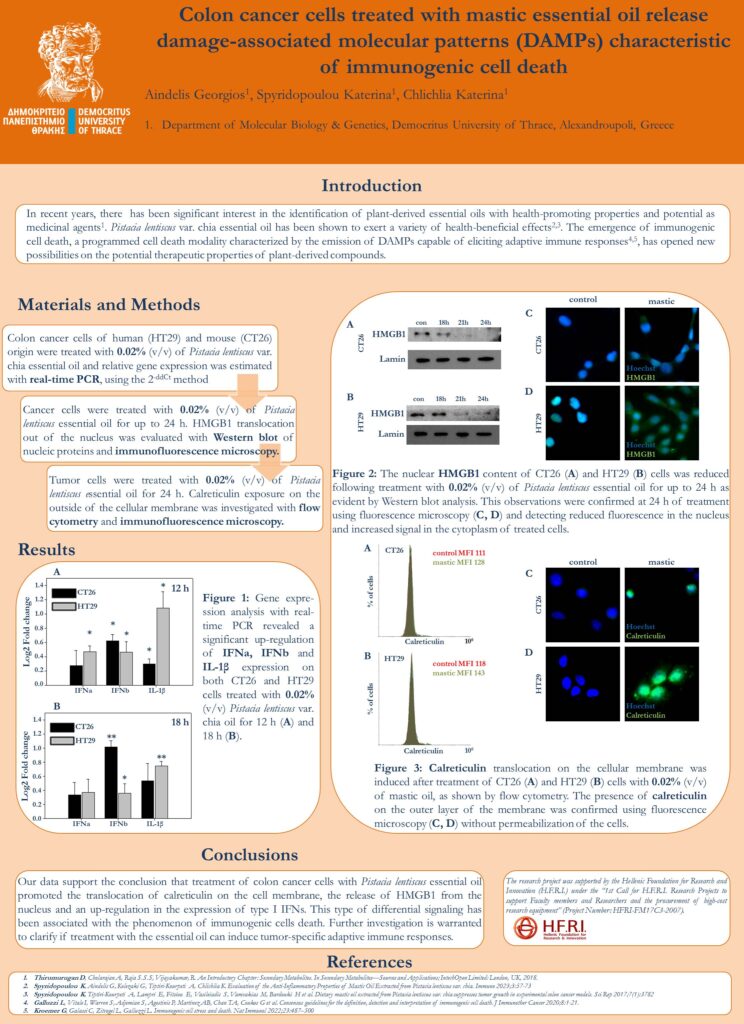Colon cancer cells treated with mastic essential oil release damage-associated molecular patterns (DAMPs) characteristic of immunogenic cell death
Aindelis Georgios, Spyridopoulou Katerina, Chlichlia Katerina
The identification of immunogenic cell death has challenged the classical idea that programmed cell death is unable to elicit adaptive immune responses. Cancer cells dying in this manner prove immunogenic, due to a combination of tumor cell antigens and DAMPs released from dying cancer cells that act as potent immunostimulators. Herein, we evaluated the ability of mastic essential oil to induce immunogenic cell death in colon cancer cells of human and murine origin. To this end, HT29 and CT26 cells were treated with 0.02 % (v/v) of essential oil for up to 24 hours and various DAMPs, associated with immunogenic cell death were evaluated. Intriguingly, in both cell lines exposure of calreticulin, an endoplasmatic reticulum chaperon, on the outer layer of the cytoplasmic membrane was detected using flow cytometry, with a variation in the time of maximum exposure. Similarly, exposure of heat shock proteins was also detected in treated cancer cells. In addition, the translocation of high mobility group box 1 (HMGB1) protein, outside the nucleus was assessed with Western blot and was found to be increased when cancer cells were incubated in the presence of the essential oil. Interestingly, this effect was found to be time-dependent, for up to 24 hours of treatment. Finally, the gene expression of type I interferons was estimated using real-time PCR. It was found that expression of interferon alpha 2 and interferon beta was elevated in CT26 and HT29 cells, also in a time-dependent manner and beginning as early as 12 hours post treatment with mastic essential oil. All of the above observations have been linked with the emergence of immunogenic cell death. Our findings suggest that treatment with mastic essential oil induced the release of DAMPs, capable of eliciting adaptive immune responses against dying cancer cells. Therefore, this plant-derived extract may hold promise as an alternative, adjuvant anticancer agent. Further studies are underway in order to confirm these results and also if mastic oil-treated cancer cells can induce tumor-specific adaptive immune responses and that the effect is transferable in in vivo models. This project has received funding from the Hellenic Foundation for Research and Innovation (HFRI) and the General Sekretariat for Research and Technology (GSRT), under grant agreement HFRI-FM17C3-2007.

Backround by pikisuperstar on Freepik
Contact bioactivescreen.duth@gmail-com
The project was supported by the Hellenic Foundation for Research and Innovation (H.F.R.I.) under the “1st Call for H.F.R.I. Research Projects to support Faculty members and Researchers and the procurement of high-cost research equipment” (Project Number: HFRI-FM17C3-2007)


